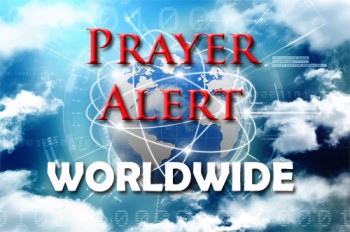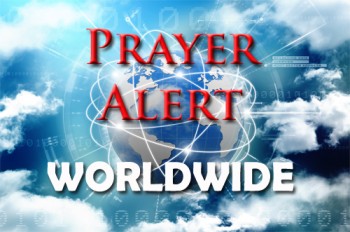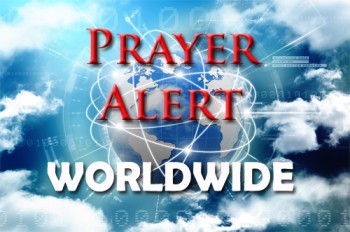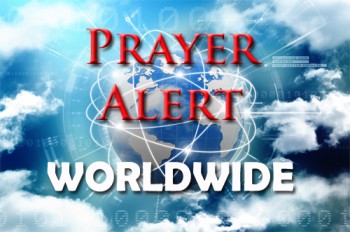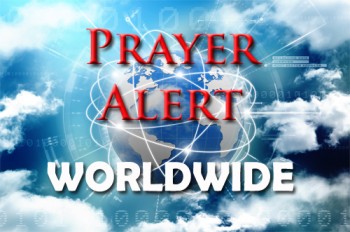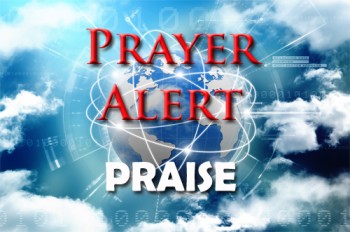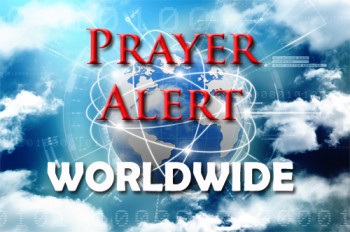Displaying items by tag: Africa
Global: terrorism - 2
A few militants defending a Syrian river bank are all that is left of IS’s ‘caliphate’. 40,000 foreigners from 110 countries joined it; many have gone home, creating security challenges. Thousands are in Kurdish detention camps awaiting relocations. Distinguishing between regretful and repentant hangers-on and truly dangerous fighters is a legal and political nightmare, creating relationship cracks between Europe and US. Meanwhile IS’s black flag flies over an enclave on the Philippine island of Basilan, where a cathedral was bombed. IS-linked groups are still active in Nigeria, Sudan, Pakistan, India, Indonesia, Bangladesh, and stretches of northern Africa and the Sahel. While they may not have access to the oil revenues that enabled IS to claim to be an actual state, they remain a security threat. IS is also alive and well on the web, with gruesome and well-produced propaganda.
Eritrea: 32 Christians arrested in March
This month Eritrean police have arrested 32 Christians in the capital, Asmara, including a newlywed couple and ten of their guests. Eritrea’s human rights record was recently condemned at the UN Human Rights Council. A UN monitoring group said thousands of Christians are facing detention, as ‘religious freedom in Eritrea continues to be denied’. The council also heard that Eritrea’s claims of improvement in the human rights were unfounded. In 2002 Eritrea introduced a law prohibiting Christian practice outside the Orthodox, Catholic and Evangelical Lutheran denominations, and Sunni Islam.
Algeria: answered prayer
Last week you prayed for the aged President Bouteflika to withdraw from standing in the next election, and for God to raise new leaders for the nation. On 12 March the state news agency reported that the president was withdrawing, and would not stand as a candidate in the next election. He has named the interior minister as the new prime minister, and plans to create a new government with a special body to draft a new constitution to respond to the protests. May God continue to bless Algeria with His purposes.
Sudan: nine women sentenced to twenty lashes
President Bashir released all females detained for anti-government demonstrations on International Women's Day. The next day nine Sudanese women protesters were arrested and sentenced to twenty lashes plus a month in prison. In February Bashir declared a state of emergency and other measures including emergency courts across the country. The women were arrested for participating in a ‘banned demonstration’ in the capital's eastern district of Burri, a site of regular protests, and tried in one of the ‘emergency courts’. They are now in a women's prison in Omdurman. An appeal against the verdict was filed on 10 March. Protests against Bashir have happened almost daily across Sudan since 19 December. Pray for government leaders to rule with integrity and justice, and for peace and stability between tribal groups and military commanders who continue to vie for power.
Nigeria: Christians sue the government
Rev Solomon Mfa and ten other Christian leaders filed a suit against the Nigerian government at the West African States Court of Justice, which has jurisdiction over human rights issues in the area. On 26 February the court ordered the government to investigate attacks that killed 300+ Christians and destroyed property; identify and prosecute the perpetrators; and redress the victims. ‘The government is in violation of its obligation to protect the human rights of these communities,’ the three judges stated in their unanimous verdict. The court also ordered the government to take urgent measures to protect Christians in the area by deploying soldiers and police to the affected communities. In the past three years, Muslim Fulani attacks have killed 1,000 people and destroyed property in 15 counties.
Kenya: Ethiopian Airlines plane crash
An assembly of the UN Environment Programme (UNEP) opened in Kenya's capital with a minute’s silence as delegates stood under the dark cloud cast by a plane crash that killed 157 people, including UN staff working for several different agencies. Through the week, as the identities of more victims were reported, heartache rippled through the conference halls. Students at Kenyatta University mourned the deaths of a lecturer and the director of teacher professional development. Hundreds of lives will not be the same as they mourn. Meanwhile Boeing faces further questions over the safety of its 737 Max 8 jets, now grounded after the second fatal crash in months. See
Algeria: taking down a picture frame
82-year-old President Bouteflika has not spoken in public in years. At public ceremonies or meetings his handlers place a framed picture of him on an easel. The government has announced that Bouteflika, who suffered a debilitating stroke in 2013, will seek a fifth term of office. Protests erupted, and continue. 70% of Algeria's population is under 30. Millions are fed up with a state-run economy that is flagging. Despite demonstrations, Mr. Bouteflika’s circle still plan to wheel him out for April’s elections. Meanwhile influential legislators from the opposition resigned from parliament to support the grassroots demands for change. The stakes are high. Europe counts the country as a major energy exporter, a counter-terrorism ally, and a partner in controlling migration flows from Africa. A young population with high expectations no longer accepts an authoritarian system. Repercussions could spread far beyond Algeria. See
Jesus appears in a dream
Mostafa travelled to Cairo with the intention of killing his cousin Mohammad for converting from Islam to Christianity. He found him in a worship service and waited to make his move. The songs and prayers he heard in that service appealed to him. He approached Mohammad with tears in his eyes, ‘I came from our village to spy on you and see if you had become a Christian. I should tell your family what I saw, but I just can’t. I think the choice you made might have been the right one. Can you tell me more? Why did you leave Islam for Christianity?’ The cousins spent hours discussing the Gospel, and that night Mostafa dreamt of Jesus on the cross looking at him and saying, ‘I did this because I love you, and I want you to be free from your sins.’ Mostafa told Mohammad his dream. The following month he was baptised, with Mohammad standing next to him.
South Africa: land reforms
The Christ-centred National Land Summit (28 February to 1 March) is calling South Africans with faith like Joshua and Caleb to contribute towards a national Kingdom consensus for addressing land reform and rural systemic poverty. Kingdom-minded, faith-filled, positive people who are active in their communities, building bridges and creating solutions to local challenges, have been urged to attend. Jan Oosthuizen, the organiser of the event and facilitator of the New Nation Movement agricultural think-tank, said, ‘We appreciate the obedience and work God has established in His people all over South Africa, and believe that a cross-section of their contributions for overcoming the challenges that face agriculture and rural poverty will be invaluable.’
Nigeria: election postponed, pastor murdered
President Buhari said that the independent National Electoral Commission has questions to answer over the postponement of the general election to 23 February. He warned those planning to snatch ballot boxes that they will pay with their life. Open Doors said, ‘For Nigerian Christians, elections draw attention to a long-term crisis and can intensify attacks on them. Christians are fearful because they have been targeted so often.’ The most recent was when Pastor Jatau’s car was ambushed and he and his family were dragged away. His body was found two days later but his wife, three children, and two sisters-in-law are missing. Kidnappers are demanding a ransom for the family. They were travelling to take up a new ministry when they were attacked. See
